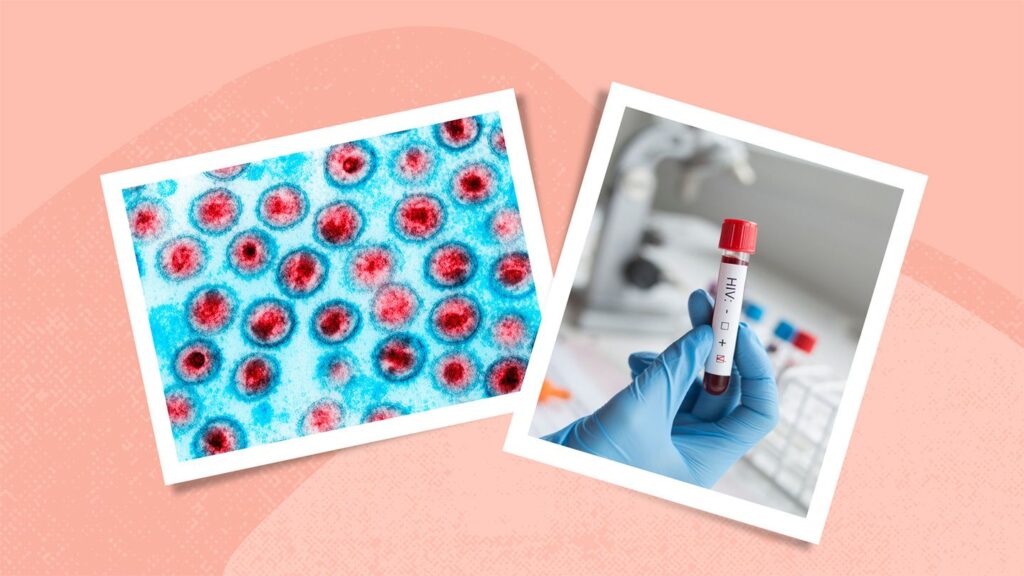Acute pericarditis is inflammation of the membrane surrounding the heart that develops suddenly and causes sharp chest pain. The cause is usually a viral or bacterial infection. The condition is treatable and often curable, with symptoms lasting less than four to six weeks. But if left untreated, it can lead to serious complications.e60dc2a1-f33c-4a05-9b50-8e3e8e597629d8a868b8-d982-43be-a086-d5edb933e8f5e60dc2a1-f33c-4a05-9b50-8e3e8e597629bab2f1dd-edb5-41ad-8934-0932bb75b66d
Overview Overview What Is Acute Pericarditis? Pericarditis occurs when the pericardium, the thin, two-layered sac that surrounds the heart, becomes inflamed, resulting in sharp chest pain or ache.e60dc2a1-f33c-4a05-9b50-8e3e8e5976290fa72813-5a5f-4062-84e8-ac8cd1edbeb0 Acute pericarditis develops suddenly, but generally doesn’t last more than four weeks. The condition is often treatable, and in most cases, symptoms improve on their own. However, pericarditis may come back after treatment, also known as recurrent pericarditis.e60dc2a1-f33c-4a05-9b50-8e3e8e597629b0be39ef-cb65-448e-9cb4-fbe82aa564ac
Signs and Symptoms of Acute Pericarditis Symptoms Chest pain isn’t the only symptom of acute pericarditis. Other symptoms can include:e60dc2a1-f33c-4a05-9b50-8e3e8e597629b8d52ad5-c198-4b66-b030-97d8608c4dbf Fatigue Shortness of breath Fast heartbeat or heart palpitations Muscle aches and pains Fever Dry cough Difficulty breathing while lying down “People often report chest discomfort which is worse with deep breathing and when lying down, and relieved by sitting up,” says Sergiu Darabant, MD , a cardiologist at Miami Cardiac & Vascular Institute, part of Baptist Health South Florida. Symptoms of pericarditis can also mimic those of a heart attack , which is why it’s important to seek medical assistance if you experience sudden chest pain.e60dc2a1-f33c-4a05-9b50-8e3e8e5976293c76874d-4010-4765-b4c8-ff3858bb489e
Causes of Acute Pericarditis Causes In many cases, the cause of acute pericarditis is unknown. Several possible causes of acute pericarditis include:e60dc2a1-f33c-4a05-9b50-8e3e8e5976292e13a253-61bb-4454-b5d6-7a679aa73336 Viral and bacterial infections, including tuberculosis Chronic autoimmune conditions, like rheumatoid arthritis and lupus Thyroid disorders Injury to the chest, like knife or bullet wounds Inflammation after heart surgery Radiation therapy to the chest (such as for lung cancer), or rarely, due to cancer itself Certain medications like phenytoin , warfarin and heparin , and procainamide
How Is Acute Pericarditis Diagnosed? Diagnosis Your healthcare provider will likely ask you about your medical history, whether you have had any respiratory conditions or recent heart surgery, or other medical conditions. They will also perform a physical exam, including listening to your chest with a stethoscope, and order diagnostic tests. Pericarditis is a clinical diagnosis, but tests used to support the diagnosis include:e60dc2a1-f33c-4a05-9b50-8e3e8e5976297ad21c1c-9951-4eb7-a632-c139492e3783e60dc2a1-f33c-4a05-9b50-8e3e8e5976294c69caef-5978-4594-baf9-3f53b37058cf Electrocardiogram (ECG) to check for changes in how the heart beats Blood tests to look for signs of inflammation Chest X-ray Echocardiogram (a heart ultrasound) Heart magnetic resonance imaging (MRI) to show pericardium thickening or inflammation Heart computerized tomography (CT) scan to show heart thickening
Treatment and Medication Options for Acute Pericarditis Treatment The goal of treatment is to reduce pain and inflammation and to prevent the condition from recurring. Medication Options Treatment for acute pericarditis can include:e60dc2a1-f33c-4a05-9b50-8e3e8e597629bedab5b6-7531-4615-9ede-2afe4960b25e Anti-inflammatory medicines such as: Nonsteroidal Anti-Inflammatory Drugs (NSAIDs) : Reduces swelling and pain Ketorolac : Often used for short-term pain control in severe cases Colchicine : Often used in combination with NSAIDs, this reduces recurrence rates and shortens the course of symptoms If the condition doesn’t resolve with NSAIDs, your doctor may prescribe a low dose of prednisone , a corticosteroid, although some research suggests using corticosteroids may increase the risk of recurrence.e60dc2a1-f33c-4a05-9b50-8e3e8e597629af1f949c-855f-4e65-8cfa-0e9f7422fb4fe60dc2a1-f33c-4a05-9b50-8e3e8e5976298257a8f7-09cd-4bbd-8f10-5b9af8532fb6 If the cause is related to autoimmune conditions like rheumatoid arthritis, immunosuppressants or immunomodulators, medicines that target the immune system, will be prescribed. If the pericarditis is caused by a bacterial infection, antibiotics are the usual course of treatment.e60dc2a1-f33c-4a05-9b50-8e3e8e597629693b4aa5-1092-436b-8d75-784529e5be58
Complications of Acute Pericarditis Complications When pericarditis goes on for longer than four weeks, it’s no longer considered acute. When a person has symptoms for more than four weeks but less than three months despite treatment, it’s referred to as incessant pericarditis. Recurrent pericarditis occurs when the condition returns after treatment.e60dc2a1-f33c-4a05-9b50-8e3e8e597629391a0b9f-a9ff-4a99-9234-1d99eee7e6e6 Constrictive Pericarditis For symptoms that last more than three months, the condition becomes chronic, which can lead to constrictive pericarditis. “Constrictive pericarditis is a condition where chronic inflammation of the pericardium leads to stiffening of the pericardial sac, which restricts the heart’s ability to fill properly as it is beating in the chest,” says Dr. Darabant. If not properly treated, it can lead to heart failure .e60dc2a1-f33c-4a05-9b50-8e3e8e59762977e2a017-32e1-4d0c-883e-b327681418f0 Pericardial Effusion Another condition related to acute pericarditis is pericardial effusion. This is when fluid builds up in between the pericardium and the heart, putting pressure on the heart. Treatment depends on its severity and cause. If the amount of fluid is small, your healthcare provider may monitor the condition or manage it with medications. If too much fluid fills your pericardium, it can lead to cardiac tamponade, which can be life-threatening.e60dc2a1-f33c-4a05-9b50-8e3e8e5976295c99e8b6-7de9-4041-87bb-4dea8f29d712 Cardiac Tamponade When the pericardium fills up with too much fluid, this can constrict the heart, making it difficult for the heart chambers to fill with blood and pump it to the rest of the body. This can lead to shock, a condition in which your body’s organs aren’t receiving sufficient blood to function. If the fluid isn’t removed quickly, the condition can be fatal. A procedure called pericardiocentesis is usually performed using a needle and a small tube to remove the excess fluid around your heart.e60dc2a1-f33c-4a05-9b50-8e3e8e597629a3997a25-dfaa-4abc-bbf2-1a9c3653818ae60dc2a1-f33c-4a05-9b50-8e3e8e59762995e3fd45-9691-46ec-9876-8e397ee4cc0b
The Takeaway Acute pericarditis can develop suddenly and cause sharp chest pain, similar to a heart attack. While the cause is often unknown, it can be the result of an infection, autoimmune disorders, heart surgery, or chest injury. The most common treatments include NSAIDs to bring down the inflammation and pain. Symptoms usually last less than four to six weeks; however the condition can return, or become chronic, which could lead to complications such as constrictive pericarditis and pericardial effusion.
Resources We Trust Cleveland Clinic: Acute PericarditisAmerican Heart Association: What Is Pericarditis?MedlinePlus: PericarditisNational Heart, Lung, and Blood Institute: Heart Inflammation: PericarditisMerck Manual: Acute Pericarditis
Acute Pericarditis



